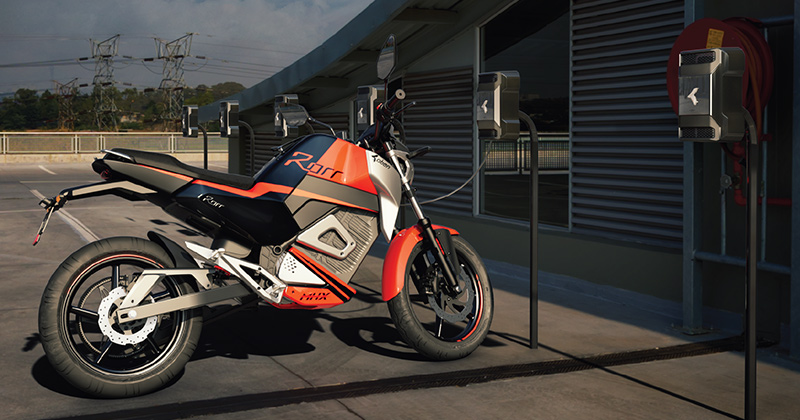- ALL
- TRENDING
- PERFORMANCE
- CHARGING
- BATTERY
- DESIGN
- TECH
- NEWS
A Guide to EV Charging Stations in Bengaluru

Table of Contents
Switching from conventional to electric transport is a great way to reduce the carbon footprint in the transport sector. A robust grid of easily available electric vehicle charging points is indispensable to the development of ‘green mobility’. Bengaluru is one such city in India which has witnessed a surge in the use of electric vehicle due to their modest pricing, simplicity of use and environmental benefits. In 2023, the tech-savvy city community witnessed a significant jump in the number of charging stations for electric vehicles. Read on to explore the current landscape ofelectric vehicle (EV) charging stations in Bengaluru.
EV charging stations in Bangalore - All you need to know
Like most big cities, Bangalore boasts of an extensive network of EV charging stations. These are distributed across residential areas, public spaces and commercial centers. The Karnataka government, in conjunction with Energy Efficiency Services Limited (EESL), has launched the "EVolve" program, with an aim to install over 500 public charging stations across the city. To ensure convenience and accessibility, these stations will be strategically placed at parking lots, shopping malls, petrol stations, etc.
Major EV charging stations in Bangalore
Ather Grid
Athergrid is a vast network of EV charging stations in Bangalore established by Ather Energy, an electric bike manufacturer in India. A wide range of electric vehicles can be charged at any of Ather’s charging stations as they offer both AC and fast charging DC options. The areas covered include tech parks, shopping malls, and cafes, among others.
Indian Oil Corporation Limited Charge Points
Primarily an oil company, IOCL has recognised the growing need for EV charging infrastructure in the country. Adapt at both AC and DC fast charging options, these charging stations are conveniently located at select petrol stations along the major highways lining the city.
Bescom Charging Stations
Another smart initiative by the government, the Bangalore Electric Supply Company has taken an active interest in the promotion of electric vehicles, thus setting up numerous charging stations in Bangalore.Although these charging stations are primarily aimed at charging cars, they can easily be used for charging e-bikes .Bescom has ensured their charging stations are located at key areas, easily accessible to the public.
Magneta Power
Through their Charge Grid initiative, Magenta Power has buckled down to establish its niche in the electric vehicle charging space. With a focus on four-wheeler charging infrastructure, their EV charging stations in Bangalore are compatible with electric bikes as well. A prominent name in the EV arena, their charging stations are well spread across hotels, office complexes and various public locations. They provide both AC and DC fast charging options to customers.
Tata Power EZ Charge
EZ charge introduced by Tata Power has set up a wide network of EV charging stations in Bangalore. Tata has ensured that their charging stations are located smartly across the city. If you are whizzing around the city, you can be sure to find one of these charging stations at hotspots around the city.
Here is a comprehensive list of some of the city's easy-to-locate EV charging stations.
Public Charging Stations
- MG Road Metro Station: Google Map Location
- UB City, Vittal Mallya Road:
- Orion Mall, Rajajinagar:
- Mantri Square Mall, Malleswaram:
- Indira Nagar Metro Station:
- Kempegowda International Airport:
- Manyata Tech Park, Nagawara:
- Lalbagh Botanical Garden:
- Forum Mall, Koramangla:
- Brigade Parking Lot:
Private Charging Stations
- Tata Power E-mobility station, Hosur Road
- Mahindra Electric fast charging station, Peenya
- Multiple locations of Zoom car Electric Charging points
- Multiple ATHERGRID charging locations
- Bosch service center, HSR
Today, both the Private and Public sectors have begun making significant investments in the development of EV infrastructure. The infrastructure of the EV charging stations in Bangalore is continually evolving with new charging stations constantly being added to the pre-existing network. There are a number of reliable EV charging station locator apps and websites that provide accurate and up-to-date information on EV charging stations in Bangalore. The growing numbers of these charging stations herald a greener future for the transportation sector.
Types of Electric Two-Wheeler Charging Stations
Based on the type of electricity generated, electric charging stations found in Bengaluru can be categorised into the following:
AC Charging Stations:
As the name suggests, AC charging stations disperse Alternating Current. The same type of current is available in your house or office’s electric socket.
When you recharge your electric bike through an AC port, electricity is first transferred to the vehicle’s onboard charger. This charger converts AC to DC (Direct Current) and then feeds the power to the vehicle’s battery pack.
DC Charging Stations:
DC Charging stations generate Direct Current (DC). However, unlike its AC counterpart, Direct Current is much harder to produce and transfer. Owing to this situation, there are fewer DC charging stations.
Nevertheless, DC charging stations are known for their fast-charging capabilities. Since the current produced is already direct, these chargers can bypass the vehicle’s onboard charger and power the charging bike’s battery pack straight away.
AC and DC Charger Variants
Electric charging stations are different from the standard petrol pumps. Unlike fuel stations, where any vehicle can refuel itself regardless of its build, EV charging stations are segmented based on their charging types and levels.
A typical electric bike charging station hosts chargers of the following variants:
AC Level One Charger:
Level-one chargers are the slowest charging variant. Due to its low requirement of a 120 V electric outlet, these chargers are mostly used at home. It delivers - 3 kW to 7.4 kW of power to the charging e-bike, stretching the total charging time to 11-20 hours.
AC Level Two Charger:
Level two chargers are the next best option for quickly charging your electric two wheelers. It requires a 240V electric outlet but can deliver a power ranging between 6.2 to 22 kW. Level - two chargers can slash the total charging time down to 3-8 hours.
DC Fast Charger:
DC chargers are the fastest charging variant that is currently available in the EV ecosystem. These charging stations transfer direct current and require a 480 V electric power source. However, this massive power requirement is worth the hassle, since it can charge your electric bike up to 80% within 1-2 hours.
Positive Impacts of EV Charging Stations
The rapid increase in the number of EV charging stations in Bengaluru will have several positive impacts:
Environmental Benefits:
The biggest reason behind the rise of EVs is their positive impact on the environment. By using a cleaner form of energy, these bikes reduce carbon footprints and can also decrease the rampant exploitation of fossil fuels. More charging stations and better infrastructure will encourage individuals to shift to EVs, leading to a cleaner, greener city.
Economic Advantages:
An increased number of charging stations across the country can propel India’s EV industry and cause a massive boom in its sales. When that happens, more businesses are likely to emerge in this sphere. Apart from mainstream electric bike production, businesses can also contribute to infrastructure development and battery manufacturing. This can lead to more job opportunities and provide a reasonable push to the Indian economy.
Boosting Adoption:
A primary concern discouraging people from embracing electric charging bike is range anxiety. Most users are worried that electric bikes in India are not able to travel longer distances, and they might get stranded without a charging station during their commute. However, if adequate charging stations are made available around the nation, it can eliminate this concern and encourage people to switch.
Future Plans
India is aspiring to become a frontrunner in the adoption of electric vehicles globally. Being a part of the global 30@30 campaign, India wants its EV sector to capture a 30% market share by 2030. However, this ambitious goal faces a significant challenge due to the insufficient development of EV charging infrastructure.
Needless to say, India is taking the necessary steps to boost its charging infrastructure. As of 2023, India has more than 5,200 public charging stations, and it aims to open as many as 46,000 public stations by 2030. To boost these numbers, the government has started the Energy Efficiency Services Limited initiative, urging private players to contribute to this business.
Karnataka has been a top performer in this department. It currently hosts 704 charging stations, 320 of which have been established by the Bangalore Electricity Supply Company (BESCOM). One of the reasons behind its success is its Public-Private Partnership (PPP) model.
BESCOM aspires to significantly increase its current numbers. It has set the target of expanding to 3,568 charging stations in the upcoming years. While reaching this goal is a monumental task, Karnataka can achieve it if they progress at their current pace.




